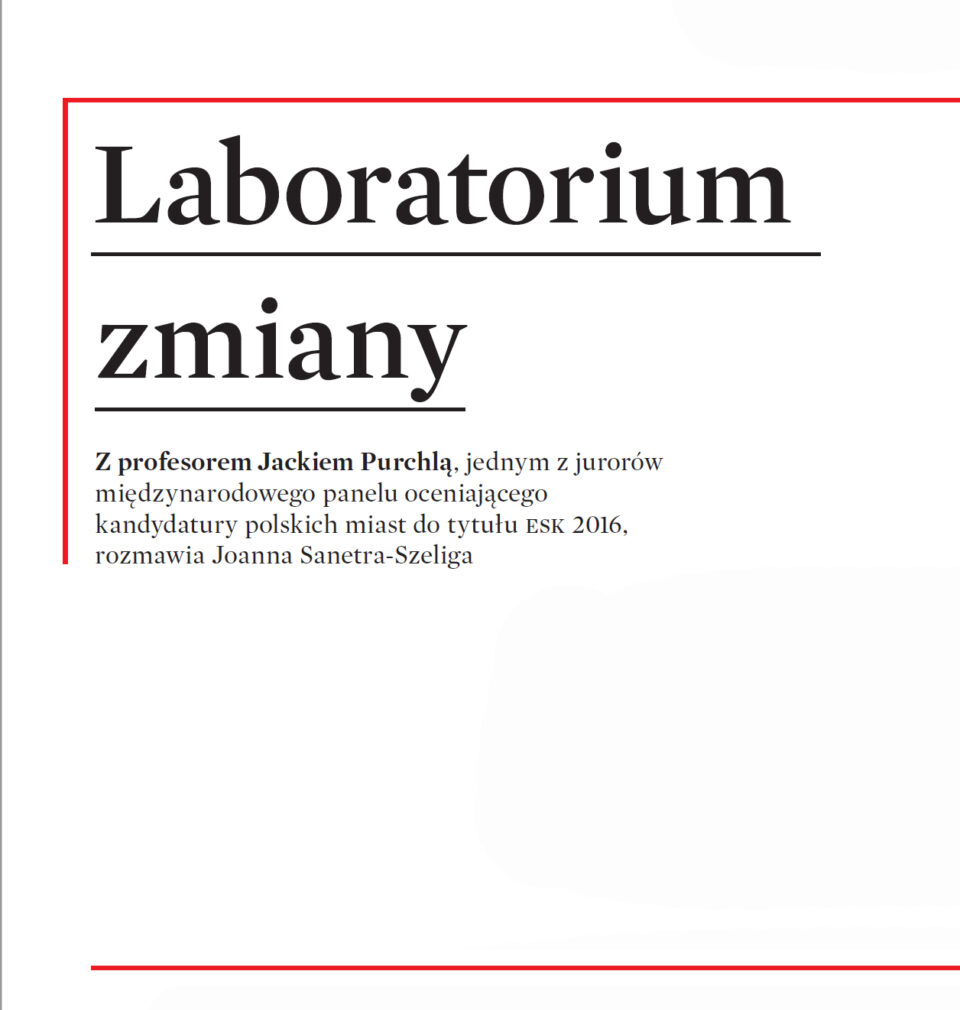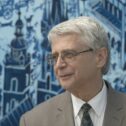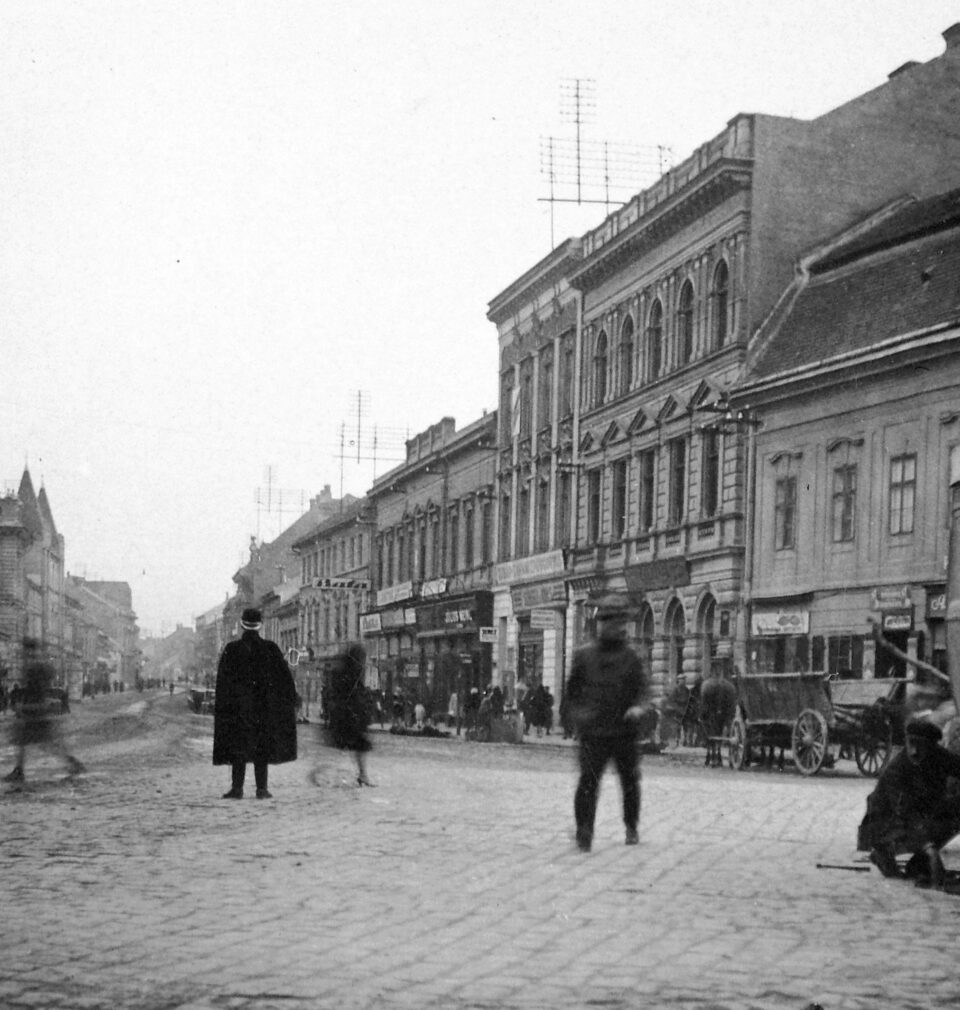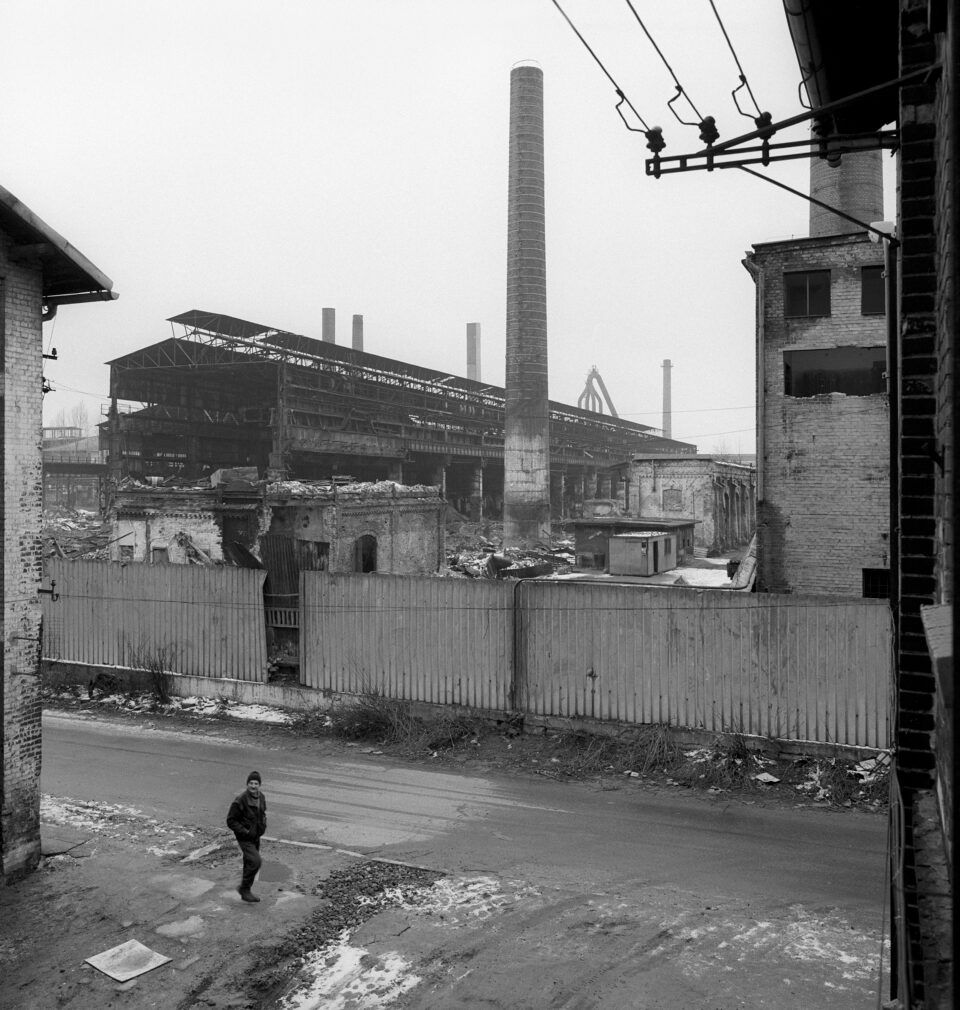
Cities for Thought
Laboratory of Change
Publication: 11 October 2021
TAGS FOR THE ARTICLE
TO THE LIST OF ARTICLESFrom the romantic enthusiasm of the 1992 European Culture Month in Krakow to the fierce rivalry of Poland’s cities in the competition for the title of European Capital of Culture 2016
Joanna Sanetra-Szeliga: Professor Purchla, you have been involved with the European Capital of Culture (ECC) project for over twenty years now. How has this initiative of the European Communities, originally known as European City of Culture and since 2005 as European Capital of Culture, changed in that time?
Jacek Purchla: The ECC today is without a doubt the European Union’s greatest political and public relations success in the sphere of culture. And indeed, Melina Mercouri’s beautiful initiative from the mid-1980s has undergone a telling evolution over the intervening quarter-century. It started with a romantic vision and the intention to foster better mutual understanding. But even in the early 1990s the ECC project (then still known as the European City of Culture) was gradually becoming an important tool for integration and development through its large-scale cultural projects. And so a political initiative without formula, foundation or philosophy, based chiefly on a sort of improvisation, gradually developed into an increasingly well-defined and formatted project. The ECC today is an institution in itself!
If one were to précis the history of the ECC to date, several stages in its evolution would have to be identified. In the first phase the cities chosen for the title were the grand capitals and metropolises, the great symbols of European civilisation, such as Athens, Florence, Amsterdam, Berlin and Paris. The selection process was the ex cathedra domain of the politicians. In this context I see the nomination of Glasgow in 1991 as a breakthrough, a milestone in the project’s development. This was a city of quite a different calibre and significance to its predecessors. It was also a city itself undergoing a difficult period of socio-economic transformation, a process that successfully exploited culture as an instrument of change. There have been several such cities over the past twenty years, to mention just Antwerp in 1993 or Lille in 2004.
After a run of cities such as Glasgow, Antwerp, Thessaloniki and Bergen, where culture was employed as a catalyst for transformation, the success of the ECC project was so unquestioned, and the flair and ambitions of the cities themselves so broad, that Brussels was forced to hone and refine the project. Even ahead of the year 2000 the ECC had developed into such a strong brand that it triggered fierce rivalry between cities at the national level. One prime example of this is the German case of Nuremberg losing to Weimar in the battle for ECC 1999. Having said that, the selection process at that time was still governed by political criteria rather than official competition and open rivalry between the cities. This is also the context of the decision of the European Council and Parliament selecting Krakow and eight other cities European Cities of Culture in 2000. An undoubted value of that decision was the creation of the network of the nine cities, from Reykjavik and Santiago de Compostela to Prague and Krakow; another was the political gesture of allowing several of the countries still only at the stage of aspiring to EU membership to participate in the project.
The true revolution, however, came with the introduction on 1 January 2007 of detailed criteria[1], which I believe came together in time with a new attitude towards the role of culture in the contemporary world, to good effect. This new perspective treats culture as a chance for transformation of medium-sized towns often burdened with post-industrial ballast. It is in such contexts that culture has the potential to act as a catalyst for positive change. Among the strategic benefits of the ECC project defined in this way I would count the image boost, better positioning of the town/city and reinforcement of given elements of its competitive edge, implementation of new culture management strategies, and creation of new cultural infrastructure. One superb example of this last advantage is Graz, with its new icon, the Kunsthaus – the fruit of its term as “European capital” in 2003.
In this context the 2000 Krakow festival should certainly be considered an event that helped the city to build its brand and improve its image, and above all contributed greatly to its recognisability. But today we can also say that Krakow 2000 was – unlike many of the other ECC events – a wasted opportunity. It did nothing to improve the city’s still poor cultural infrastructure. It was also a wasted opportunity in terms of the objectives we set ourselves those 20 years ago on the occasion of the European Culture Month: a new philosophy on patronage of culture and the entrenchment in Krakow of a festival industry with greater than local significance.
In fact, the festival industry in Krakow developed in parallel to the ECC; two successful examples are the Festival of Jewish Culture and the Beethoven Festival… The main impact of Krakow 2000 was to provoke heightened emotions and political divisions. The political obstacles were also what restricted this opportunity to little more than a cultural firework rather than a catalyst for strategic change. There is some comfort in the fact that the legacy of the tough experience that was Krakow 2000 has been exploited by the Krakow Festival Office – the posthumous child of Krakow 2000.
J.S.S.: Poland first embarked on its adventure with the ECC directly after 1989.
J.P.: Poland is an unusual laboratory for the ECC east of the Elbe, and has the longest and most complex experience with the project of all the post-communist countries – thanks to Krakow. It was Krakow, as early as in December 1990, just a year after the Berlin Wall came down, that was nominated by the Council of Europe to act as organiser and host of the first European Culture Month (ECM)[2]. This took place in June 1992, when the title of European City of Culture was held by Madrid. As such, the Polish perspective offers a particularly clear angle on comprehension and perception of the ECC project – perhaps even more so than in Western Europe. Suffice it to compare the romantic creation of 1992 with the rivalry over the title of ECC 2016 that we witnessed a few months ago. This is not only the best illustration of the mental change we are seeing in our society, but also a sign of the transformation that is occurring in many Polish cities. Today their mayors are “speaking fluent Florida”[3], and the average citizen is beginning to understand that culture is an important facet of development.
J.S.S.: As you said, Krakow was the organiser of the first European Culture Month in history. As the coordinator of that project you faced an immense challenge.
J.P. Yes, it really was a major challenge, and the context in which we were working was tough and complex. It might sound rather exotic today, but the objectives of that Krakow EMC were to break out of our isolation and respond to the need to open up, to market a place that back then was insufficiently recognisable and lacked positive connotations, to build our brand, but also to discover our neighbours, forge a European-wide system of networking, and satisfy the “hunger” for artistic creativity on a large scale. It was also our intention to prove what was then no more than a hypothesis but is today an obvious truth: that Krakow is a natural setting for a festival industry. We wanted to prove that building leisure, culture and festival industries was the future for a city that in the early 1990s was only just embarking on the transformation process, a city in which 50% of the GDP was generated by the Lenin Steelworks.
Back in 1992 even formulating the budget for the EMC was an incredible challenge. It comprised largely external funds, mostly foreign rather than local, and was equal to the city’s entire budget for culture! It would be fair to say that the EMC provided a chance for Krakow’s culture budget to be doubled, a substitute for local government patronage of culture, which was still in its infancy at the time. It would not have been diplomatic to say so back then, but the EMC gave an immense injection of support to our institutions, which were in the throes of profound crisis due to the dire situation of the Polish economy. You have to remember that this was a critical point in the system change: Balcerowicz had implemented his reforms, inflation was rampant, and the economic growth indices were tumbling. I remember the extreme stress a month before the beginning of the EMC. We were nearly halfway into 1992, and the Sejm had still not passed the national budget! In the May it was announced that teachers and university academic staff might not receive their salaries on time. The state budget was in tatters. In that situation, we, the organisers, wondered how our festival would be received, addressed as it was to the Polish public above all. We asked ourselves: “Will they come or won’t they?”, “Will they buy tickets or not?” They bought tickets and they came[4]. That was the first time in the history of Polish culture that the “producer market” had come up against the “consumer market” on such a scale. The attendance records at the EMC events have still not been broken since, and I think this was the greatest success of the EMC. In June 1992 Krakow had a life apart, dominated by the major cultural events and the unique atmosphere that we managed to create at that critical moment in Poland’s transformation. In the course of our Month, Warsaw had three different mayors, and the country at large was rocked by a serious political crisis. But Krakow was living on great art and was opening up to the world again – not only that, but people were seeing at first hand that culture is not just a useless add-on.
To summarise Poland’s early experiences with the ECC project, then, we have to stress that it was the first such major encounter of stagnation with dynamism in our country’s post-1989 cultural policy history – the encounter being between the stagnation of the contemporary cultural infrastructure and institutions, which were in serious crisis, with the dynamism of the creativity that the festival format allowed. The city’s newly revived local government was not yet sufficiently prepared to take direct responsibility for the organisation and implementation of such a large-scale event. It supported, enabled, did not obstruct, but equally did not participate in the experiment, which rested above all on my own personal risk and the risk of the International Cultural Centre Foundation. For without risk there can be no creativity. Looking back today from the 2011 perspective it would be true to say that in 1990 and 1991 we in Poland were the pioneers in thinking on developing the city through culture. The European Culture Month formula we created in 1992 was taken up by the hosts of subsequent ECMs. We also became noticed in Europe. It was no accident that already in the summer of 1992 the mayor of Nuremberg, Peter Schoenlein, offered Krakow a partnership in his city’s preparations for the 1999 ECC title. If not for internal German political decisions preferencing Weimar (as a city in the former GDR), as early as in 1999 Krakow might have taken part in a pioneering project between two cities from either side of the former Iron Curtain.
To round off this question, I should add just one more thing: the Polish experience with the ECC project is a long-term experience over twenty years. It shows how Melina Mercouri’s idea took root east of the Iron Curtain. There are several good examples of how much we were in need of this initiative. And of how the ECM, so often forgotten, offered an opportunity not only to Krakow, but also to Graz, Budapest, Plovdiv, Nicosia and Ljubljana – cities of the “new Europe”, cities from the European Union candidate countries (for as well as those from the post-communist states there was also Graz in Austria and Nicosia in Cyprus. It revived, mobilised and fired the imagination of local politicians. And I think it is this experience that in some sense has triggered the imagination of the mayors of Poland’s major cities in the most recent competition for the title of ECC 2016.
J.S.S.: The experience of the ECM and the ECC certainly must have appealed to the imagination of the stewards of Poland’s cities given that as many as eleven[5] have entered the fray. Why so much interest, do you think?
J.P.: It’s a fortuitous coincidence. On the one hand I must stress again the question of a long period of positive experience – including the successes of cities of the new Europe such as Sibiu in Romania, holder of the title in 2007 – which Polish candidate cities have certainly been able to draw on. And then there is the fact that Polish municipal councils have finally recognised what many in the West have known for a long time: culture can offer a development opportunity, can be exploited as a catalyst for change. I might also point out that in fact, the cities in countries that underwent transformation after 1989 are actually ahead of their national governments in their thinking on this issue. In the twenty years of Poland’s transformations, and notwithstanding the success of the changes that we have seen, the country has not managed to push through anything that might be termed a reform of the culture sector – in fact, culture is the only public sector in Poland that has not been subjected to any sort of deeper reform. To a large extent it remains as if at the same stage as it was before 1989, especially in the institutional stratum. Our culture sector, particularly its public segment, cannot keep pace with the speed of change in the contemporary world. The powerhouses of this change, in Poland as much as anywhere else, are the cities. It is the cities themselves that have learned to treat culture as one of the driving forces of their development. And that is wonderful! A real breakthrough.
Another extremely important factor is that our accession to the European Union on 1 May 2004, and now the competition for the 2016 ECC title have forced changes to the thinking on and management of culture at the local level that none of the successive national governments have had the courage to implement – and we must remember that culture is not even the main facet of EU politics.
J.S.S.: You have been a juror in several competitions for the ECC title. Has the Polish competition been a surprise to you in any way?
J.P.: This competition has surprised us all in several respects. We did not suspect that the ECC idea was so popular in Poland. We did not expect so many such different cities – many of them by no means recognised centres of culture – to enter the competition. In the end, as many as eleven cities entered, and the majority of them prepared for it well. That is the first aspect. Secondly, if I had to make any comment on this competition, it would be that a very significant development is that it was held in accordance with the new criteria and standards that I mentioned before, and so will certainly be in line with the European Commission’s new thinking. Note that back in 2004, following the biggest wave of accession, of ten countries, including Poland, the Commission’s president, José Manuel Barroso, said that the EU had reached the stage in its history when its cultural dimension could no longer be ignored[6].
J.S.S.: How did the Polish cities fare in the competition?
J.P.: I must stress that even at the first stage of the competition all the candidate cities showed that they understood the need for culture in their strategic development. In this respect I must single out Toruń in particular, the smallest of the eleven candidate cities, and the earliest to start its competition preparations. It drew up an ambitious, well thought-out project, and must have been deeply disappointed not to be included among the five finalists. I personally believe it missed out partly because it was the city with the smallest potential and the weakest infrastructure, and is relatively little known, particularly among the foreign jurors. The city that was most surprised by the verdict in the first round, though, was Poznań, at least that is how I construed the angry words of its mayor in response to the announcement of the verdict. The capital of Greater Poland was one of the favourites to win the competition overall, in view of its immense cultural potential. But only until the applications were opened, when it transpired that its proposal had completely failed to meet the ECC criteria. This shows that the local authorities in some cities had not appreciated that the competition is run according to very clear-cut rules and it is not enough to treat the rivalry merely as a kind of beauty contest.
J.S.S.: Poznań’s application was probably the weakest of those sent in for the competition. Those of Bydgoszcz, Szczecin, Białystok and Łódź also failed to convince the jury. Why? Were they badly filled in, or were their notions of the ECC ill thought through?
J.P.: The fact that the competition is a two-stage process by definition meant that the majority of the candidates would have to be rejected at the first stage. So it is fair to say that basically, the others were better. I should add, though, that in the jury’s direct interviews with the delegations from the various cities, it was not only the form and content of the presentation that counted, but also the credibility of the project itself – its feasibility. And the guarantors of that are the cities’ mayors. I am also pleased that we took the decision to carry five favourites (and not just the top two) through to the second round.
J.S.S.: The cities selected to go through to the final were Gdańsk, Katowice, Lublin, Warsaw and Wrocław. How did the last stage of this grand rivalry for the 2016 ECC title proceed?
J.P.: It came as a great satisfaction to us to see that in the six months from the announcement of the first verdict all five of the shortlisted cities put in an immense amount of work and produced a vast leap of quality – a leap not only connected with the desire to win the competition, but also in their strategic thinking on culture and including it organically in their development plans. This was something that reassured us that our decision to hold a broad final was the right one. This was a value added in a competition in which there was no podium and only one of the five candidates could win. I should also add that the programmes of most of the cities, in particular the finalists (and above all the ultimate victor, Wrocław, whose application was entitled Spaces for beauty), were to be construed more as an attempt to manage their space than as a bid to sell a product. Citizens themselves were also invited to contribute to the applications. This is another of the ECC project’s great successes in Poland: not only effecting mental change in the political class, the local governments of our biggest cities, but also releasing the vast potential of energy, creativity and enthusiasm in the non-governmental sector, and generating many wonderful grass-roots initiatives. In this respect I would like to single out two of the finalists for particular mention. One is Katowice – the city that we thought would be the poor relation, the outsider of the eleven, but that prepared an intriguing, fascinating, unconventional garden-city project. It invited the cooperation of other towns in the Upper Silesian conurbation also in the throes of a fundamental transformation of their traditional 19th-century industry (mining and metallurgy) into a creative industry. The other is Lublin, where the immense local enthusiasm was coupled with a prescient interpretation of the city’s chances of development as the EU’s cultural gateway to the East, and a gateway for Ukraine and Belarus to the EU.
J.S.S.: And what was it about Wrocław that ultimately convinced the jury?
J.P.: If we look at the final more closely, it would be true to say that Wrocław was the unquestioned leader. In fact, it was already organically prepared for the competition by the two decades of transformation. This is a city where culture and heritage have already played a major role in fundamentally altering its position in both Poland and the wider Europe since the fall of communism.
J.S.S.: So was there a clear rival to Wrocław?
J.P.: The counter-candidate for first place, and equal rival, with a flawless dossier, was Gdańsk. But when we actually went there, we noticed a kind of void, a gap, in that the city seems not to be abreast of the beautiful ideal that the Solidarity ideal was in its programme. The very fate of the Lenin Shipyards and the historic canteen where the August Agreements were signed is immensely telling. The proportions between that ideal and the content were deeply uneven.
J.S.S.: So what will the European Capital of Culture in Poland in 2016 be like?
J.P.: Wrocław’s victory is above all a victory for Poland. In the first place we have the opportunity to show Europe that in and through Wrocław we have been able in recent years to overcome our complexes, and above all to overcome the issue of German Breslau, which is now no longer a burden for the citizens and authorities of the city, but a resource and a reservoir of potential that is exploited creatively in its development. Secondly, Wrocław has shown that with vision and charisma the local authorities, and their leader, the mayor, are often a decisive element or factor in a city’s success. And thirdly, I suspect that Wrocław is not only the intriguing space of the largest European city to have seen a complete population exchange in the wake of the tragedy that was World War II (the 650,000-strong German population of pre-war Breslau has been replaced by a comparable number of Polish residents today). Its citizens are identifying with the space on an increasingly profound level. Both in communist times and since, the people of Wrocław have formed a remarkably creative community that goes beyond the local, whether in the form of the Grotowski Theatre, the Wrocław Pantomime Theatre, or Tadeusz Różewicz, or current, contemporary undertakings. There is no doubt that Wrocław will be a fine representative not only of Poland but also of our region in 2016. For Central Europe today is not only a symbol of multiculturalism and dialogue but also the embodiment of the need to interpret culture accurately for future development.
***
[1] Pursuant to Decision 1622/2006/EC of the European Parliament and of the Council of 24 October 2006 establishing a Community action for the European Capital of Culture event for the years 2007–2019, one of the fundamental criteria for selection of the ECC city is a European dimension to the proposed actions; the other criteria is “the City and Citizens”, which is intended to foster involvement of the city’s residents in preparing and conducting the projects. Another important tenet was incorporation of culture into the candidate cities’ development strategy.
[2] The EMC was a Community initiative similar in aims and formula to the European Cities/Capitals of Culture. The idea was born out of the enthusiasm and increased desire for integration following the collapse of the Berlin Wall. The EMC was something of a gesture extended by Europe’s West to its East: it was cities in countries outside the European Communities that were invited to organise it.
[3] A reference to Richard Florida, author of the much-hyped The rise of the creative class, Basic Books, 2002.
[4] Altogether the EMC events are estimated to have attracted audiences of over 300,000. Cf. Jacek Purchla, Europejski Miesiąc Kultury w Krakowie. Czerwiec 1992, Kraków 1993, p. 43.
[5] Białystok, Bydgoszcz, Gdańsk, Katowice, Lublin, Łódź, Poznań, Szczecin, Toruń, Warsaw and Wrocław.
[6] José Manuel Barrosa’s speech Europe and Culture, delivered in Berlin on 26 November 2004 during the conference A Soul for Europe.
Copyright © Herito 2020




